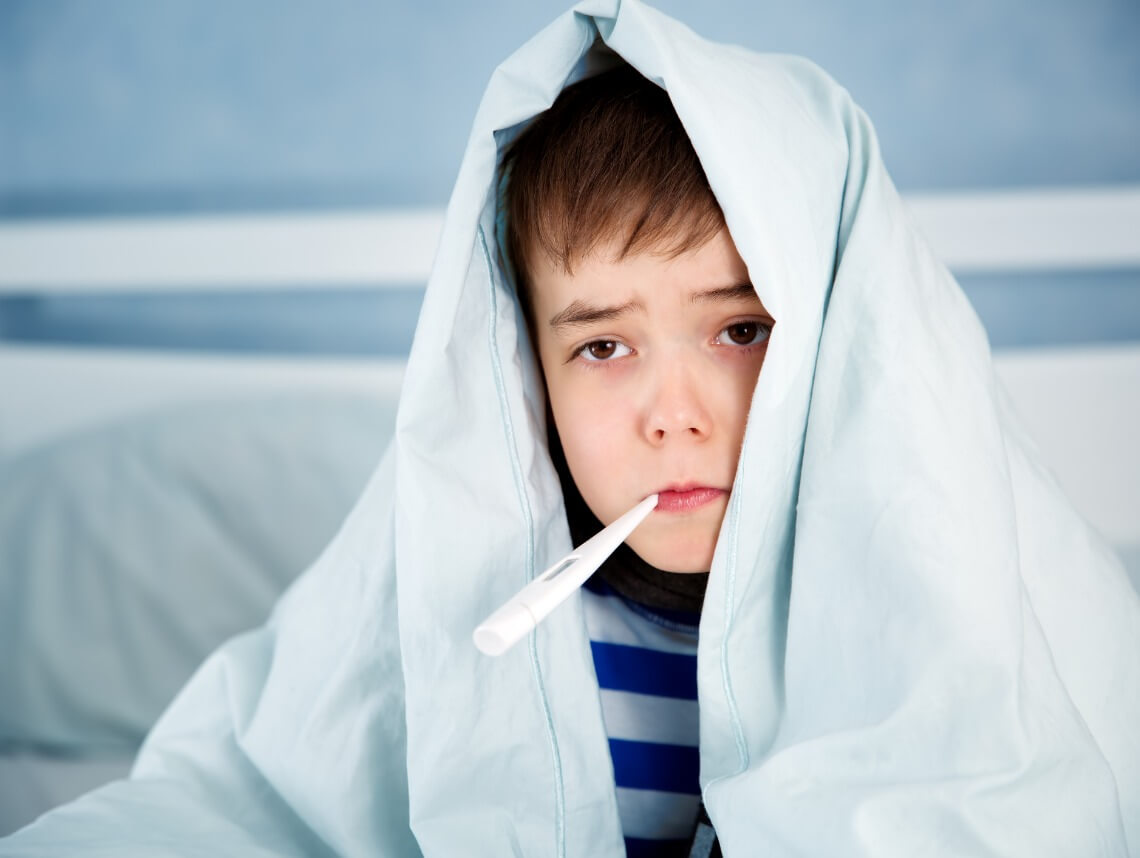If you’ve ever had a sunburn, then you know that peeling skin is part of the healing process. But, when you see that your child’s skin is peeling without having been in the sun, it can be alarming, to say the least. Peeling skin is one of the signs of Kawasaki disease — a rare condition that typically only impacts children five and younger. While it can be startling, the disease is treatable, and most children recover without any complications. But, what do you need to know if your child develops the disease?
What is Kawasaki disease?
Kawasaki disease is a type of vasculitis — which is inflammation of the blood vessels. The disease can affect anywhere in the body, including the blood vessels of the heart. While the cause of Kawasaki disease is unknown, it tends to impact newborns to children five years of age. But, children up to 13 years old can also be affected. If left untreated, the condition can cause problems with the coronary arteries.
Symptoms of Kawasaki Disease in Children
Peeling skin isn’t the only symptom of Kawasaki disease. Other common signs include:
- Fever of 102.0° F to 104.0° F lasting at least five days
- Red rash
- Swollen lymph node — usually in the neck
- Swollen hands and feet
- Red eyes (bloodshot eyes)
- Red and dry, cracked lips
- Red tongue with white spots
- Irritability
- Fast heart rate
- Diarrhea or vomiting
- Peeling skin
- Joint pain
- Belly pain
Kawasaki Disease Diagnosis
Since the symptoms of Kawasaki disease can be present in other illnesses, the only way to be sure of your child’s condition is to take them to their pediatrician. Their physician will conduct a physical exam and assess their symptoms. It’s important to note that your child needs to have a fever for four or five days — along with several of the other symptoms — to determine if the condition is Kawasaki. If your pediatrician still isn’t sure, they may conduct additional tests, including:
- Lab tests
- Electrocardiography (ECG)
- Echocardiography (Echo)
- Cardiac catheterization
Kawasaki Disease Treatment
Once diagnosed, the physician will create a treatment plan for your child. How your child is treated will depend on their age, symptoms, and general health. Treatment options usually begin with a couple of days in the hospital and include a prescription for aspirin or IV gamma globulin (IVIG). Once discharged, your child will need a low-dose aspirin for six to eight weeks. If your child develops heart problems, you may need to visit a pediatric cardiologist.
Complications of Kawasaki Disease
In some cases, your child may need additional medicine, procedures, or surgery. While most children get better without any long-term effects, additional problems may occur. Most of these complications involve the heart, including:
- Weakening of the heart’s arteries
- Weakened heart muscles
- Inflammation of the heart muscle, lining of the heart, or covering of the heart
- Heart valves that don’t work well
- Heart failure or heart attack
How to Care for a Child With Kawasaki Disease
For most children, a low-dose aspirin for six to eight weeks will be enough to relieve the disease. But, even after treatment ends, your child should regularly see a cardiologist to minimize the risk of early coronary artery disease — including early heart attacks. You’ll also need to ensure that your child practices a heart-healthy lifestyle. This includes:
- Eating healthy foods
- Getting regular exercise
- Not smoking
Your child will need to attend regular appointments and follow-up appointments during and after their treatment. Any procedure or surgery may require specific care instructions to keep your child healthy and on the road to recovery. This can include preventing possible infections. If your child is being treated for Kawasaki disease, keep an eye out for any complications and call your doctor immediately if your child experiences:
- Tiredness
- Poor feeding or eating
- Trouble breathing
- Swelling
- Chest pain
Contact Care Options for Kids for Home Health Care
It can be hard to balance your time between work, home, and caring for a child. That’s why our team of professionals at Care Options for Kids is here to help.
Our home health care services offer support in the comfort of your home. We refer loving and competent nurses to provide customized care for families — from a few hours a day to around-the-clock supervision. Contact us directly to speak with a home health care professional or request a free in-home assessment. Together we can determine the best plan of action to keep your loved ones happy and healthy.
If you or a loved one are considering pediatric home health care services, contact the caring staff at Care Options for Kids. Call today at (888) 592-5855.






